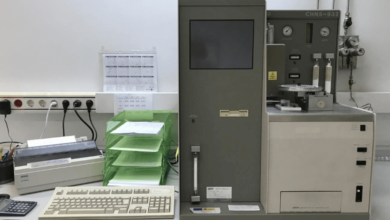How Is Smart Technology Changing Power Management in Businesses?

In recent years, the integration of smart technology has revolutionized the way businesses manage power. With growing concerns about energy efficiency, cost reduction, and sustainability, companies are adopting intelligent power management systems that optimize energy use and enhance operational control. This shift is transforming traditional electrical infrastructures into dynamic, responsive networks. At the heart of this transformation are commercial electricians, whose expertise ensures that smart systems are properly designed, installed, and maintained to meet the unique demands of modern businesses.
The Rise of Smart Power Management
Smart technology in power management involves using connected devices, sensors, automation, and data analytics to monitor and control energy consumption in real time. Unlike conventional electrical setups, smart power systems provide businesses with actionable insights that help identify inefficiencies, prevent equipment failures, and reduce energy waste.
These advanced systems can include smart meters, automated lighting controls, energy management software, and integration with renewable energy sources. By continuously gathering data and adjusting power usage accordingly, smart technology enables businesses to operate more efficiently and sustainably.
See also: Why PCredCom Is Mexico’s Favorite Tech Playground
How Commercial Electricians Facilitate Smart Technology Integration
The successful implementation of smart power management begins with skilled commercial electricians. Their role extends beyond simple wiring and installation; they provide critical expertise in assessing a business’s existing electrical infrastructure and recommending upgrades compatible with smart technologies.
Commercial electricians ensure that the integration of sensors, controllers, and communication networks is seamless and compliant with safety standards. They configure systems to optimize energy flow and enable remote monitoring and control, empowering businesses to make informed decisions about their power consumption.
Enhanced Energy Efficiency and Cost Savings
One of the most significant benefits of smart technology in power management is improved energy efficiency. Businesses can reduce energy consumption by automatically adjusting lighting, heating, ventilation, and air conditioning (HVAC) based on occupancy or time of day. For example, smart lighting systems can dim or turn off when rooms are unoccupied, while HVAC systems can optimize temperature settings according to real-time needs.
Commercial electricians play a crucial role in installing and calibrating these systems to function accurately. Their expertise ensures that the technology aligns with the building’s layout and operational requirements, maximizing energy savings and minimizing waste. Over time, these efficiencies translate into substantial cost reductions on utility bills.
Predictive Maintenance and Reduced Downtime
Smart power management also enables predictive maintenance through continuous monitoring of electrical equipment. Sensors can detect unusual patterns such as voltage fluctuations, overheating, or abnormal current draw, which often precede equipment failure. Early detection allows businesses to schedule maintenance proactively, preventing unexpected downtime.
Commercial electricians analyze this data and intervene when necessary to repair or replace components before they cause operational interruptions. This proactive approach not only safeguards productivity but also extends the lifespan of critical electrical assets.
Integration with Renewable Energy and Storage Systems
As businesses adopt renewable energy sources like solar panels and wind turbines, managing power flow becomes more complex. Smart technology simplifies this process by coordinating energy generation, storage, and consumption efficiently. For instance, energy management systems can store excess solar power in batteries during peak production and release it during high demand, reducing reliance on the grid.
Commercial electricians design and implement these integrated systems, ensuring that renewable components communicate effectively with existing electrical infrastructure. Their knowledge guarantees that the systems operate safely and maximize the benefits of clean energy sources.
Real-Time Monitoring and Remote Control
Smart technology empowers businesses with real-time monitoring and remote control capabilities. Facility managers can track energy usage across different departments or equipment and identify areas for improvement instantly. Remote access allows for adjustments without the need for on-site personnel, increasing flexibility and responsiveness.
Commercial electricians set up these monitoring platforms and train staff on their use. They ensure that data collection is accurate and secure, enabling businesses to leverage insights for strategic decision-making and sustainability reporting.
Supporting Regulatory Compliance and Sustainability Goals
Governments and regulatory bodies increasingly require businesses to meet energy efficiency and environmental standards. Smart power management systems help companies monitor compliance and generate reports to demonstrate adherence to regulations.
Commercial electricians assist by ensuring that installed systems meet code requirements and by providing documentation necessary for audits. They also support businesses in aligning power management strategies with broader sustainability goals, enhancing corporate social responsibility initiatives.
Conclusion
Smart technology is fundamentally reshaping power management in the business world. By enabling real-time monitoring, automation, predictive maintenance, and integration with renewable energy, these systems improve energy efficiency, reduce costs, and enhance operational reliability. Skilled commercial electricians are essential to this transformation, providing the technical know-how to implement and maintain smart power solutions tailored to each business’s needs. As smart technology continues to evolve, its role in optimizing energy use and supporting sustainable business practices will only become more critical. For companies looking to stay competitive and responsible in today’s market, embracing smart power management with the guidance of experienced commercial electricians is a strategic imperative.





